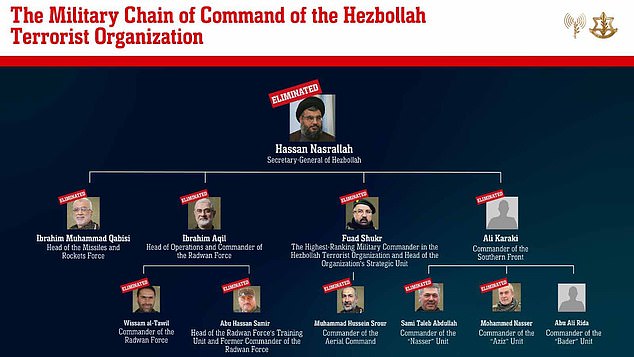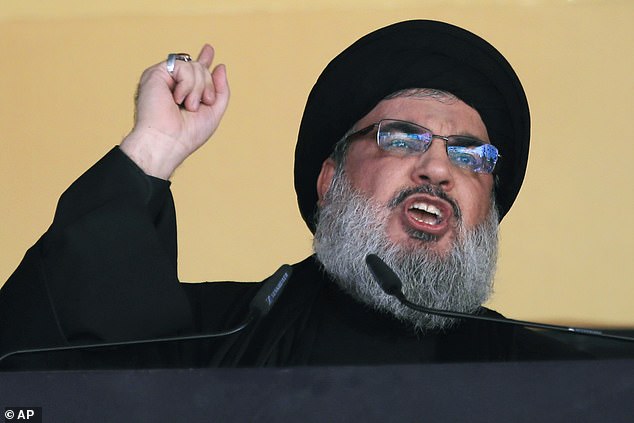Explosions have been heard in Iran’s capital and the nearby city of Karaj, Iranian media said.
There are reports of at least five explosions that have rocked the city of Tehran, as well as loud explosions heard in the countryside and the central region of Damascus, although the cause is still unknown.
Israel has been planning a response to a ballistic missile barrage carried out by Iran on October 1, Tehran’s second direct attack on Israel in six months.
This comes after tensions rose in the region following the death of Hezbollah leader Hassan Nasrallah.
Iranian authorities have warned Israel not to launch an attack, saying any attack on Iran would face stronger retaliation.
Witnesses in Tehran confirmed hearing loud explosions and said: “It was so loud that the sky turned red,” said an Iranian resident in Tehran, who asked not to be identified.
Israel has killed Hezbollah chief Hassan Nasrallah (pictured in 2015) in attacks in Beirut.

Israel published a graphic showing senior Hezbollah officials who had so far been “eliminated”, adding that they had “dismantled” the group.
Iran’s Supreme Leader promised that “all regional resistance forces” would support Hezbollah and demanded a “strong” response to the attack a few weeks ago.
And as the region appears to be on the brink of war, the Israeli military boasted that decapitation of Hezbollah was “not the end of our toolbox” and gloated that they can “catch up” with anyone who threatens them.
In a blatant mockery of the countries around them, the Israel Defense Forces (IDF) then shared a diagram of Hezbollah’s chain of command, where each leader had been marked as “Eliminated.”
In addition to this, three days ago Israel killed Hashem Safieddine, the supposed “next leader” of Hezollah in a bombing of his bunker.
Safieddine was a powerful cleric within Hezbollah’s ranks and was expected to succeed Hassan Nasrallah.
Another 25 Hezbollah leaders were also reportedly killed during the airstrike.
Iran has ordered its military to plan attack scenarios in case Netanyahu gives the green light to attack key sites in its anticipated retaliation for the Oct. 1 missile bombardment.
Iranian officials, on condition of anonymity, told the New York Times that Iranian Supreme Leader Ayatollah Ali Khamenei has told his military to prepare various responses that will be implemented depending on the severity of Israel’s attack.
Widespread damage and a large number of casualties could provoke a strong reaction from Tehran, the officials said, adding that there may be no response if the attack is limited to military compounds.
Attention has focused on the various oil refineries and nuclear sites of economic and strategic value to Iran following its vicious attack on Israel earlier this month. Israel was said to have assured its allies in the United States that it would stay away from valuable sites.
Officials said a major attack could trigger a response with up to 1,000 ballistic missiles, five times the amount used earlier this month in what was the largest attack on Israel in its history.

